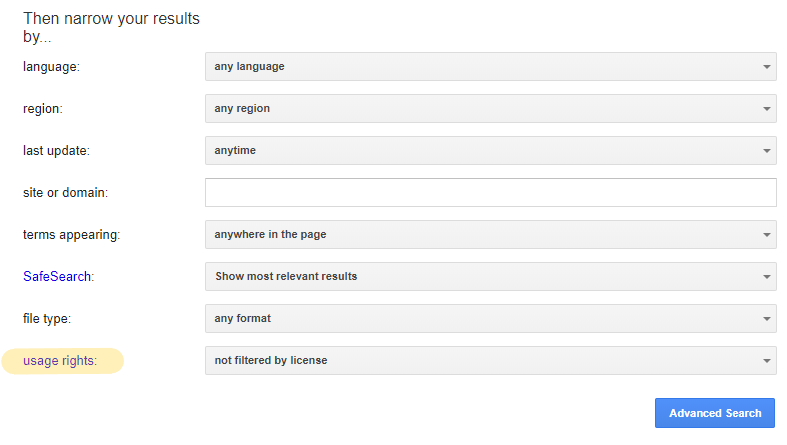Learning Objectives
By the end of this section, you will be able to:
- Demonstrate how to conduct a preliminary search for open educational resources.
- List three resources that can be used for finding OER.
There are many different places used to host OER, from institutional repositories to grant-funded websites. Consequently, not all OER are easy to find. In this chapter, we will review some methods you can use to locate OER for your course.
Attribution: “How to Find and Evaluate OER” by Abbey Elder is licensed under a CC BY 4.0 International license.
The Search Process
There are four easy steps any instructor can take when looking for open content:
- Identify keywords related to your course and its learning objectives.
- Search OER repositories and aggregators for any relevant resources.
- Review the resources you’ve located for fit, currency, accessibility, and any other rubric you deem necessary when judging teaching materials.
- Reflect on the materials you have located.
For a more guided approach through this process, download a copy of the OER Treasure Hunt Worksheet.
OER-specific search engines
Search Tips
Start Broad
Searching for OER can be difficult when you’re starting from a narrow perspective. For the most results, start with a broad search focused on your discipline. Once you’ve brought together a large collection of resources, then you can begin to limit your results.
OER Search Scenario
Barbara teaches a course on abnormal psychology. She wants to find videos, readings, and case studies related to this topic for her course. Here is an example of a search strategy she can follow by starting broad:
- Search the Open Textbook Library for “Psychology.” Peruse the Tables of Contents of listed textbooks to find chapters or sections focusing on topics covered in the course.
- Search OASIS for “abnormal psychology.” Since OASIS searches content on multiple repositories, limiting your search a little more can be useful. These can then be sorted by format, type, or date.
- Search YouTube for videos on specific topics related to Abnormal Psych. Since YouTube contains so many different types of content, being specific is more important on this platform.
- As a last-ditch effort, do an Advanced Search in Google for “Abnormal Psychology” (we will discuss this more below).
By the end of these searches, Barbara has compiled the following list: Abnormal Psychology OER List in Google Docs
Check Your Understanding
Try out your own search using simple keywords. What did you find from your initial search? When did you decide to start narrowing your results? What’s missing?
Keep an Open Mind
You don’t have to jump into a fully open course right away. Start small by adding OER lesson plans to your coursework, or wait and see what OER are published next semester. The number and breadth of OER available are changing every day. Although there might not be resources available for your course right now, that may not be the case next year or even next month. Including OER in your regular assessment of materials for use in your course is a great first step for finding resources you can adopt in the future.
Image Searches
Use the Creative Commons Search to find usable material from a variety of sources.
Filter by Usage Rights in Google
Google is a familiar resource for many of us, and it is also useful for finding openly licensed content. The Advanced Search feature in Google allows you to filter results by Usage rights. Filtering by usage rights will limit your results to works with certain licenses listed on the webpage, usually Creative Commons licenses. There are a few options to choose from in the Usage Rights list, but we recommend starting with “free to use or share” to retrieve the broadest set of results.[1]

Remember when using this method that Google trusts what users tell it about an item’s copyright status. Although a resource may be labeled CC BY or even CC 0, you should trust your instincts if you aren’t sure whether the item you are reviewing is actually under copyright. Contact a librarian or a university lawyer if you have questions.
This chapter has provided a short overview of some tools and techniques you can use to find OER. In the next chapter, we’ll provide a more comprehensive list of search tools grouped by topic and type.
Getting Help
Reach out to your subject librarian or an OER expert near you if you need help finding OER. At Iowa State University, we can help by offering consultations to find what resource(s) might be right for you. Instructional designers can help as well. Although it can be difficult to find OER in some disciplines, keep in mind that OER can be adapted to fit your course if necessary; you don’t have to use every resource as-is.
- Adding "OER" to your search terms can help you locate materials created for sharing if your Google search is retrieving too many results. ↵
